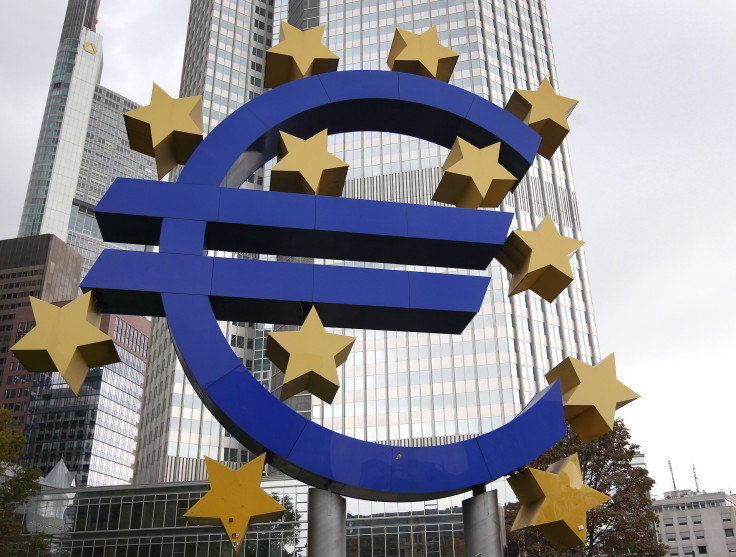European Bank Officials Signal Debate Over Upcoming Decision On Government Bond Purchases

Top European bank officials are signaling policy-makers could delay a crucial program meant to reverse declining prices in the Eurozone. In comments this weekend, leaders of the European Central Bank indicated heated internal debate remains over how the institution should handle government bonds, a New York Times analysis found Sunday.
Bank members for weeks have mulled a decision on whether to adopt "quantitative easing." The strategy involves buying large volumes of Eurozone government bonds to push down interest rate to stimulate economic activity. The 19-member Eurozone is grappling with the threat of deflation after consumer prices in the region fell by 0.2 percent in December, the first price decline in more than five years.
The European Central Bank is largely expected to announce a quantitative easing program after its Jan. 22 meeting. The institution already has slashed the benchmark interest rate to 0.05 percent, making a bond-buying policy the only other reasonable option for pushing up inflation. But in separate interviews with European media outlets, members of the bank's Governing Council offered differing views on whether to start the program soon and how it could work, the Times reported.
Sabine Lautenschläger, a German member of the bank’s executive board, said in an interview with the German magazine Der Spiegel she did not believe Europe's economic conditions were bad enough to warrant the bond-buying program.
There must be “a threat of exceptional risks’ materializing, and there must be reasonable balance between the benefits of, and risks entailed in, such a program,” Lautenschläger told the magazine. “I do not believe that to be the case at present.”
By contrast, Ignazio Visco, the governor of the Italy’s central bank, said Europe is at risk of further deflation and the most effective way to lower that threat is through purchasing government bonds, he told the German newspaper Welt am Sonntag. Government bond purchases are “a standard instrument of monetary policy,” Visco said in the interview published on Sunday, according to the Times.
Benoît Coeuré, a French member of the bank’s executive board, indicated he favored quantitative easing during a Saturday interview with France 24. But he wouldn't say definitively how bank members might vote at next week's meeting.
“I don’t want to prejudge what my colleagues and I will decide on Jan. 22 -- it’s too early,” Coeuré told the broadcaster. “But it’s clear that it’s a subject we are regarding with a lot of attention.” He added the meeting "is an opportunity to do it, but not the only opportunity."
© Copyright IBTimes 2024. All rights reserved.











